Home › University › How To Write A Personal Statement? 10 Tips + Student Questions Answered › How To End A Personal Statement So The Admissions Committee Remembers You

How To End A Personal Statement So The Admissions Committee Remembers You
- Published January 20, 2023

Students are often unsure of how to end a personal statement. A strong conclusion makes all the difference in whether your application gets noticed by admissions officers or not.
If you’ve just finished writing your personal statement and you’re stuck on your ending, then don’t worry! This article will walk you through the essentials of personal statement conclusions.
Avoid writing a tedious and forgettable ending for your personal statement by following these rules.
Talk About Your Main Points
Don’t end your final paragraph by stating what you’ve never mentioned in the body of your personal statement. Remember, the purpose of your conclusion is to wrap up the package.
You shouldn’t say, “My experiences kindled my passion for engineering,” if you didn’t mention these “experiences” in the first place!
So actually summarising your key main body points is a great conclusion in many cases.
Summarise Your Key Points In A Simple Way
After reading thousands of personal statements, the admissions committee will be happy to see you concluding your personal statement with a clear summarisation of the vital points.
Go over your personal statement and jot down the main takeaway of each paragraph. Once you have that list, find a way to integrate them into your conclusion.
You can dedicate a sentence to each key point, tie them all together, and you now have a conclusion that does what it’s supposed to do!
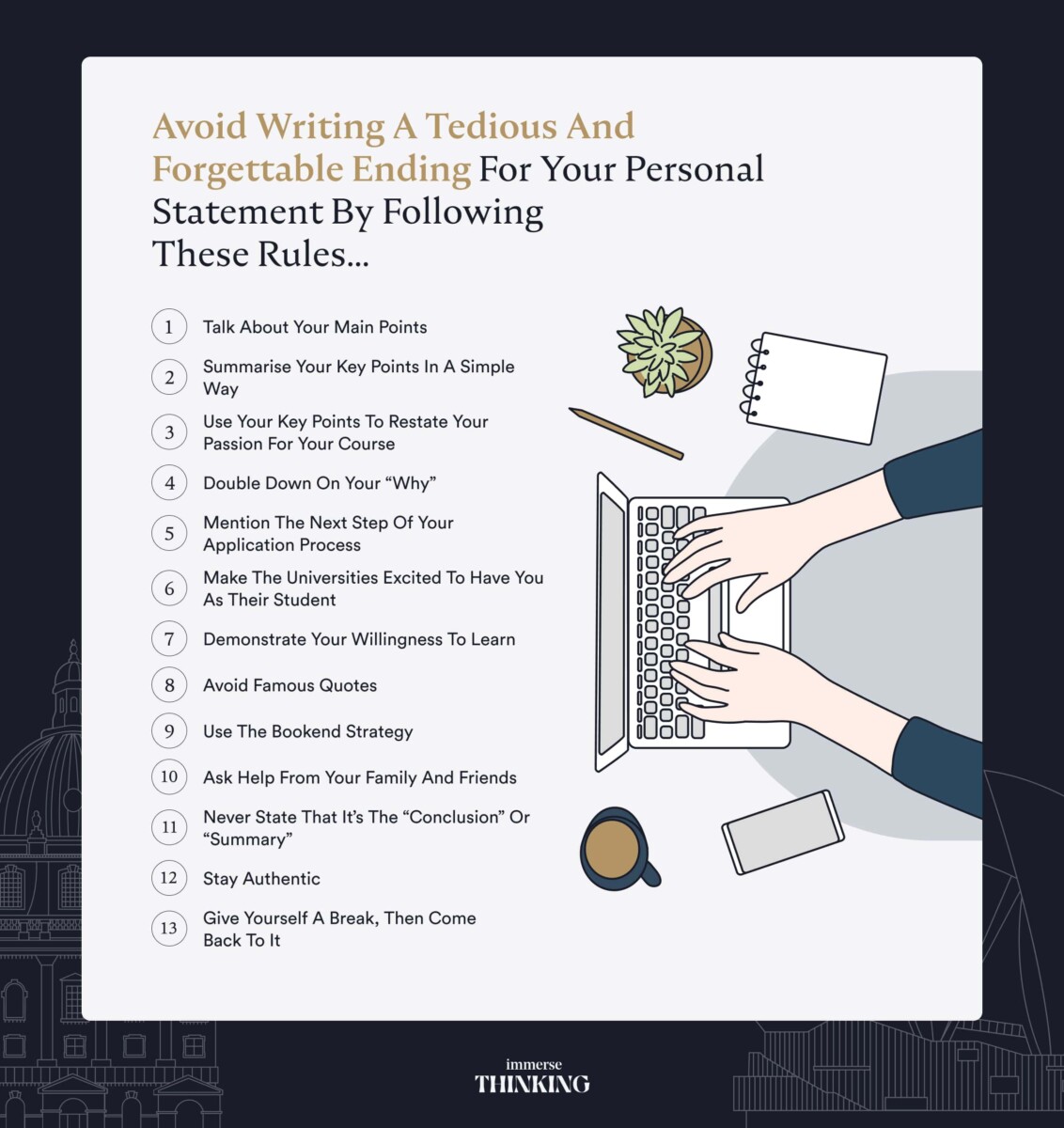
Use Your Key Points To Restate Your Passion For Your Course
If you’re wondering how to end your personal statement using your key points, use them to restate your passion for the course you’re applying for.
Say your key points including your skills and experiences, and wrap them up by saying, “With the [your specific skills] and [your specific experiences] I’ve gained over the years, I’m committed to [mention your course].”
By doing so, you’re hitting two birds with one stone. One, you’re reminding the admissions committee that you have the skill set necessary to succeed in your course. Two, you’re demonstrating your dedication to your desired course.
Double Down On Your “Why”
Another powerful ending is to remind the reader of your “why.” Many students pursue their chosen course because they’re not sure what else to take.
So being clear on your purpose immediately sets you apart from the rest.
To do this, take the most heart-moving story from the body of your personal statement on what inspired you to apply for your course. Mention the main idea of it in a sentence or two, then end with a “for this reason, I believe pursuing [mention course] is the best way to achieve my [state your why].”
If your course is related to education, perhaps your “why” is to help children learn by allowing them to show how they learn best.
Say you’re writing a medical personal statement . Maybe your “why” is to forward technology that helps safeguard the elderly from falling accidents because you witnessed your grandparent suffer injuries from a fall when you were young.
Doubling down on your “why” shows your conviction and direction on why you’re applying for your course.
Mention The Next Step Of Your Application Process
What’s the next step after the admissions committee accepts your personal statement? For many courses, they’ll call you up for an interview . Go ahead and mention this in your conclusion!
Write along the lines of “I’m looking forward to dedicating myself to this course, and I would love to receive an invitation for the interview.”
The reader will right away recognise that you’ve done your research. You know what the next step should be. You are serious about this application!
Make The Universities Excited To Have You As Their Student
Studying at a university is not merely a means to an end. It’s a profound journey in and of itself! You’ll meet new colleagues, form lifelong communities, and discover mentors who will guide you along with your future career.
Think of them when you’re pondering on how to end a personal statement. What can you contribute as a student to make the university a better place? Demonstrate your excitement in meeting them, building relationships with them, and serving them!
A statement as straightforward as “I am eager to establish new, lifelong relationships and use my [mention your skills] to help make the university a better place for learning and community-building.”
Demonstrate Your Willingness To Learn
Universities exist to train and mould students, not the other way around! A little humility goes a long way. Show yours by demonstrating your willingness to learn. Nothing excites teachers more than willing students.
To pull this off, make sure you know what values your course upholds. It could be service, excellence, inclusivity, and so on. State in your conclusion that “I’m looking forward to learning how to embody [write down the course’s values you resonate with], to grow and succeed in [mention your field of study].”
There’s so much value packed in this simple personal statement ending. Tweak it and make it yours!
Avoid Famous Quotes
Many students insert famous quotes from well-known persons when ending their personal statements. Avoid this tactic as much as possible because you’re driving attention away from YOU as the applicant.
If you want to include famous quotes, put them at the beginning of your personal statement to grab attention. To keep your reader’s attention focused on you in the end, why not come up with a memorable, relevant quote of your own?
Use The Bookend Strategy
Bookends are sturdy objects placed at either end of upright books to keep them standing. When you translate that into writing, the bookend strategy is when the introduction and conclusion statements connect to support the body between them.
You may start your personal statement with a heart-wrenching story about how you watched your beloved pet die of the wrong diagnosis. Then, for your conclusion, you can call back on this story and state how this event fuels you to pursue veterinary practice.
The bookend strategy is a clean and efficient way how to end your personal statement.
Ask Help From Your Family And Friends
If you’re still stuck on how to end a personal statement, don’t be afraid to ask for help. Approach your family and friends because they know you more than anyone. Read to them the introduction and body of your personal statement.
Ask them what particular line struck them the most. Maybe they know something about you that you missed including in your personal statement. What characteristics do they see in you that will help you succeed in your course?
Gather their answers in one place, and after reading them in one go, you now have a decent idea of what to emphasise in your conclusion statement.
Never State That It’s The “Conclusion” Or “Summary”
The most boring, generic way to end a personal statement is to write “In conclusion” or “In summary.” It’s actually one of the topics we cover in what not to put in a personal statement .
Avoid this writing style at all costs. A good conclusion statement doesn’t require explicit announcements.
By its style and structure alone, the reader knows immediately they’re about to read a lasting statement. So don’t hesitate to proceed straight to the major points. As long as the conclusion connects seamlessly with the previous paragraph, you’re good to go!
Stay Authentic
Universities hold honesty in high esteem. Show authenticity and honesty in your personal statement beginning with an attention-grabbing introduction to a strong conclusion.
The best way to radiate honesty in your personal statement is to write from the right mindset. When you work on your personal statement, your objective is to show who you are and demonstrate why you are a worthy candidate for the course .
Don’t try to impress. If you come from that standpoint, you’re more likely to add embellishments. The experienced admissions committee can smell insincere personal statements from a mile away. So stick with who you are and let your personality shine through.
Give Yourself A Break, Then Come Back To It
When working on how to conclude a personal statement, you need to give yourself time. After writing a rough draft of your conclusion statement, take a break and return to it after a few days.
When you return to it, you’ll be surprised to notice details you haven’t seen before. Edit as you like, and make it better. Keep the old versions of your conclusion at hand so you can readily compare them with your newest, edited text. Compare and choose which one sounds better.
5 Bad Examples For A Personal Statement Conclusion
These are 5 personal statement examples for conclusions that don’t meet the criteria outlined above.
- In this application essay, I have made it clear I am an outstanding candidate for a degree because I think everyone will love my positive attitude and I deserve it.
- In summary, you can see my highlighted qualifications and experience, I know they’re not the best, but I want to stress that my passion for this field is what sets me apart as a candidate. It shouldn’t matter if the others are more qualified or experienced than me.
- Remember the skills I have, that’s really what sets me apart from other students, they don’t have what it takes to break the rules creatively and not follow the book.
- Finally, I would like to thank you for considering me for this opportunity and I hope you will make the right decision by choosing me, otherwise, I may cry and be disappointed.
- As a final note, it’s easy to see how qualified I am for this degree and how I will excel in it – but you should accept me because I’m cool and will get along with everyone else.
5 Amazing Examples Of A Personal Statement Ending
- In conclusion, I am excited about the opportunity to study computer science at this university. My passion for technology, combined with my programming skills and experience, make me an ideal candidate for the program. I am eager to learn from the esteemed faculty and contribute to the research community. I am confident that this program will enable me to achieve my career goals and make a meaningful impact in the field of technology.
- In summary, I have always been fascinated by the human body and its functions. My experience in volunteering in hospitals, combined with my academic record, makes me confident in my ability to handle the rigours of a medical degree. I am excited about the opportunity to study at this esteemed university and to contribute to the field of medicine through research and patient care.
- To wrap things up, I am excited to pursue a degree in Mechanical Engineering at this university. My passion for designing and building, combined with my experience in physics and mathematics, make me confident that I have the knowledge and skills to excel in this program. I am eager to learn from the esteemed faculty and contribute to the field of mechanical engineering through research and innovation.
- Finally, I am honoured to be considered for a law degree at this university. My passion for justice, combined with my research skills and experience, make me an ideal candidate for the program. I am excited about the opportunity to learn from the esteemed faculty and to contribute to the legal field through research and practice.
- As a final note, I am excited to pursue a degree in Environmental Science at this university. My passion for the environment, combined with my experience in environmental research, makes me confident that I have the knowledge and skills to make a meaningful impact in this field. I am eager to learn from the esteemed faculty and contribute to the field through research and conservation efforts.
How Long Should the Conclusion To A Personal Statement Be?
A personal statement conclusion should be 150-200 words long and leave a positive lasting impression on the reader. A UCAS personal statement should be 4000 characters long, making the conclusion 705-940 characters long – this is just a rough estimation based on the average number of characters per word (4.7).
Do You Feel More Confident Writing A Personal Statement Conclusion?
To end your personal statement in the best possible way, you need to know the body’s key points. Use them as pillars when deciding which direction your conclusion takes.
Will you highlight your future goals? Maybe you want to focus on your why? Take the time to decide. And if you’re stuck, don’t hesitate to ask for help from your family and friends so you can leave a lasting impression on the applications committee.
How much did this article help you out? Don’t forget to bookmark this page for future reference!
Real Alumni Stories
Learn more about our alumni through their success stories.
- Real stories about our Alumni
- Students share their programme experiences
- Case studies from Alumni heading to Oxbridge
- Alumni insights and stats
Empower Your Child's Future: Book Your Complimentary Consultation Now
- Receive tailored advice to match your child's interests and goals.
- Gain insights from our experienced programme consultants.
- Get answers in real-time, making your decision-making process smoother and more informed.

Join Succeed for free: unlock £50 off your Immerse programme*
Succeed is Immerse Education’s student success platform that empowers ambitious learners with tools, content, and interactive resources for university preparation and career exploration.
* Terms and Conditions apply
Download Our Prospectus

- I'm a Parent
- I'm a Student
- First Name *
- Last Name *
- Phone number *
- Which subjects interest you? (Optional) Architecture Artificial Intelligence Banking and Finance Biology Biotechnology Business Management Chemistry Coding Computer Science Creative Writing Criminology Economics Encryption and Cybersecurity Engineering English Literature Entrepreneurship Fashion and Design Female Future Leaders Film and Animation Fine and Digital Art Film Studies Global Society and Sustainability History International Relations Law Marketing and Entertainment Mathematics Medicine Medicine and Health Sciences Media and Journalism Nanotechnology Natural Sciences Philosophy Philosophy Politics and Economics Physics Psychology Software Development and AI Software Development and Gaming Veterinary Studies Online Research Programme
Secure priority enrolment for our new summer school location with a small refundable deposit.
" * " indicates required fields
Receive priority enrolment for new summer school locations by registering your interest below.
Our programme consultant will contact you to talk about your options.
- Family Name *
- Phone Number
- Yes. See Privacy Policy.
Subject is unavailable at location
You have selected a subject that is not available at the location that you have previously chosen.
The location filter has been reset, and you are now able to search for all the courses where we offer the subject.
How to End a Personal Statement: Writing a Conclusion

Reviewed by:
Former Admissions Committee Member, Columbia University
Reviewed: 4/26/24
When you know how to end a personal statement, you boost your chances of making a lasting impact on the admissions committee. It's all about making sure they remember you in a positive way.
Crafting a compelling personal statement is the cherry on top of your college application essay. It's that final chance to leave a lasting impression on the admissions committee, to wrap up your story with finesse, and to underscore why you're the ideal candidate for their institution.
So, let's delve into the art of writing a powerful conclusion that will make your application shine.
The Importance of a Strong Conclusion
Just like a personal statement introduction , the importance of a strong conclusion in your college application personal statement cannot be overstated. It's your last chance to leave a powerful impression on the admissions committee by summarizing your key points and reinforcing your main message.
A well-crafted conclusion offers clarity, closure, and reflection while expressing your enthusiasm for the future. It's the finishing touch that can make your personal statement truly memorable.
Defining the Purpose of a Personal Statement Conclusion
The conclusion of a personal statement plays an important role:
- Reinforces Your Core Message : It strengthens the central message or theme that runs through your personal statement, leaving a lasting impression of your candidacy.
- Recaps Key Element s: It concisely summarizes the main ideas, important experiences, and notable achievements highlighted in your essay, offering a quick reminder of your qualifications.
- Leaves an Impact : Similar to a memorable closing scene in a movie, a well-crafted conclusion can have a powerful impact. Whether through a thought-provoking question, an impactful quote, or a glimpse into your future goals, it aims to engage the reader's thoughts and emotions.
- Demonstrates Your Writing Skills : Your conclusion also shows off your writing abilities, highlighting your capacity to convey your message effectively and memorably.
The conclusion adds the final touch to your personal statement. It brings clarity, wraps things up, and encourages reflection while showing your excitement for the future. Remember, a personal statement is not a statement of purpose .
It’s all about explaining why you’re the right candidate for the program you’re applying to, rather than simply explaining why you’re applying. You need to stand out! This is your final opportunity to leave a strong impression on the admissions committee, making sure they understand why you're an exceptional applicant.
Selecting the Right Approach for Concluding
When you're reaching the end of your personal statement, it's crucial to select an approach that harmonizes with the tone and message of your essay. Take a moment to reflect on the story you've shared and the impression you aim to leave with the admissions committee.
If your personal statement has revolved around a narrative, a reflective conclusion that links back to your story can be fitting. Conversely, if your essay leans towards analysis or persuasion, you might opt to restate your main argument or emphasize the key points.
Think about what will resonate most with your reader, and make sure your conclusion seamlessly follows the flow of your preceding content. This ensures a cohesive and impactful ending to your personal statement.
Summarizing Key Points
A concise summary can be highly effective in the conclusion of your personal statement. Revisit the main points, experiences, or achievements you've shared in your essay. This summary provides a quick refresher for the reader and reinforces your most significant qualifications and attributes.
It's a way to emphasize what makes you a strong candidate without restating everything in your essay. Keep it brief and focused, highlighting the highlights that best support your application. This approach ensures that your conclusion leaves a lasting impression while staying concise and to the point.
Reiterating the Thesis or Main Message
In your personal statement, you often have a central theme or message, such as your passion for a subject, your dedication to community service , or your ability to overcome challenges. Reiterating this thesis or main message in the conclusion is valuable.
By reinforcing the importance of your central theme and explaining how it relates to your desire to be a part of the college community, you can leave a strong and lasting impression on the admissions committee. This restatement emphasizes your unique qualities and aspirations, helping your personal statement stand out.
Ending With a Thought-Provoking Question
Ending your personal statement with a thought-provoking question can engage the reader and invite them to reflect further on your essay's themes. This question should tie back to your story and message, encouraging the admissions committee to consider its implications.
However, be mindful not to make the question overly open-ended. Instead, guide the reader toward thoughtful reflection on your experiences and goals, reinforcing your candidacy effectively.
Closing With a Powerful Quote
Adding a meaningful quote to your conclusion can elevate your personal statement. Just make sure it aligns with your essay's themes and provides valuable insights. A well-picked quote connects your story to a broader perspective, making a lasting impact.
Suggesting Future Goals or Intentions
If your future goals align with the college you're applying to, your conclusion can serve as a bridge between your past experiences and your future aspirations. You can briefly mention how your journey has prepared you for what lies ahead and how you intend to contribute to the college community.
This not only demonstrates your enthusiasm but also highlights the value you'll bring to the college. Just ensure that your future intentions feel authentic and well-aligned with your personal narrative.
In a nutshell, your choice of conclusion approach can make a world of difference in how your personal statement lands with the admissions committee. The right conclusion, like the perfect closing note of a melody, can leave a lasting impression that resonates with those who read it.
Determining the Most Suitable Conclusion Approach
Keep reading for the key points on how to determine the most suitable conclusion approach for your personal statement:
- Identify Your Main Message : Begin by pinpointing your personal statement's central theme or message. What have you been trying to convey throughout your essay? This central message should guide your choice of conclusion.
- Consider Your Audience : Think about the admissions committee who will be reading your personal statement. What type of conclusion would resonate with them? Consider what qualities or values they seek in prospective students.
- Match the Style : Reflect on the style of your essay. Have you been narrating a story, reflecting on experiences, making a persuasive argument, or analyzing a topic? Your conclusion should align with the style you've used throughout your essay.
- Authenticity Is Key : Ensure that your conclusion is authentic and true to your own voice. It should reflect your genuine self and not feel forced or insincere.
- Don't Shy Away from Unconventional Approaches : Sometimes, a slightly unconventional conclusion approach can leave a more memorable impression. Don't be afraid to step out of your comfort zone if it enhances your message and connection with the reader.
- Seek Feedback : Share your conclusion approach with trusted individuals who are familiar with college applications. They can provide valuable insights into the effectiveness of your chosen approach.
- Get Support : Don't be afraid to ask for assistance if you need it. Our team of experts is here to provide personalized support in crafting your personal statement introduction, making sure it truly stands out.
Your conclusion is your final opportunity to make an impact, so choose an approach that feels right for you and effectively conveys your message to the admissions committee.
Check out our database of over 55 free college personal statement examples . It's your go-to resource for crafting a standout statement that reflects your goals and experiences. Whether you're applying for undergrad or grad school, we've got you covered with diverse examples to inspire your writing. Dive in and unleash the potential of your application!
How Long Should the Conclusion of a Personal Statement Be?
When it comes to the length of your personal statement conclusion, try to keep it around 150 to 200 words. This range strikes the right balance between wrapping up your essay effectively and leaving a memorable mark on your reader.
Remember, though, that different application platforms may have specific word limit guidelines. For instance, the Common Application allows for personal statements ranging from 250 to 650 words, while the Coalition Application suggests 500 to 650 words. QuestBridge, on the other hand, typically sticks to a 650-word limit.
So, as you craft your conclusion, always keep an eye on those word limits. Staying within them showcases your ability to convey your message concisely and demonstrates your adherence to application guidelines, which admissions committees appreciate.
It's your chance to end your personal statement on a high note, leaving a positive and lasting impression.
Tips for Personal Statement Endings
Writing an effective personal statement ending for your college application is crucial. Here are some tips to help you create a compelling and memorable conclusion:
- Reflect on Your Journey : Take a moment to think about the experiences and challenges you've faced during your academic journey. Your conclusion should connect these elements to your future aspirations.
- Revisit Your Main Message : Your personal statement likely conveys a central message about yourself. Reiterate this message in your conclusion, but do so in a way that adds depth or a new perspective to it.
- Engage Your Reader : Consider ending with a thought-provoking question or a powerful quote that relates to your essay's themes. This can stimulate the reader's thoughts and emotions and leave a lasting impression.
- Look to the Future : If applicable, hint at your future goals and how they align with the college you're applying to. This demonstrates your enthusiasm and commitment to contributing to the college community.
- Match the Tone : Ensure that your conclusion aligns with the overall tone and style of your personal statement. Whether your essay is reflective, narrative-driven, analytical, or persuasive, the conclusion should feel like a natural extension of your essay's content and style.
- Stay Concise : While your conclusion is essential, it should also be concise. Avoid introducing new information or going into extensive detail. Instead, focus on reinforcing key points and leaving a strong impression.
- Proofread and Revise : Just like the rest of your personal statement, your conclusion should be well-edited and error-free. Proofread it carefully and consider seeking feedback from teachers, mentors, or peers.
- Follow Word Limits : Adhere to any word limits provided by the application platform. Typically, a personal statement ending should be around 150-200 words, but this can vary depending on the application portal.
Remember, a conclusion is your final chance to leave a positive and lasting impression on the admissions committee. Use it wisely to showcase your strengths, uniqueness, and commitment to your academic and personal journey.
Examples of Great Personal Statement Conclusions
Now, let's take a look at some personal statement conclusion examples for inspiration.
Statement Example 1
“Our first theater meeting of the year was about a month ago. Remembering my freshman year, I brought everyone on stage. This year, I switched it up. Everyone stood in the circle for icebreakers. After each response, I asked follow-up questions and prompted others to share stories of similar experiences. And just like me, there were nervous freshmen, with little to no experience. This time, I spoke up: “Oh I’ve never heard of that show. Tell me about it sometime.”
Why This Ending Worked?
This ending worked because it circles back to the beginning, creating a sense of closure and symmetry. By recalling the initial theatre meeting and contrasting it with the present, the conclusion highlights personal growth and leadership development.
It effectively showcases the candidate's ability to engage with others, take initiative, and foster a supportive community, all of which are desirable qualities in many academic and professional settings.
Statement Example 2
“Now, I don’t let people go below what I like to call the [NAME] standard’. If I feel like someone is not treating me or my friends fairly, I don’t entertain their company.
What [NAME] did wasn’t anything extravagant. He didn’t give his kidney and he didn’t race down the 101 to save me from some terrible tragedy. However, the appreciation that [NAME] showed for me and how he vocalized who I was to him, meant all the difference to me.
Now, I always let my friends know that I appreciate them and that I am thankful to have them in my life. This gift has helped me with choosing better friends who I love and appreciate. Thanks to Ben, he’s shown me how great life is when you're not alone.”
This ending worked because it emphasizes personal growth and gratitude while also acknowledging the influence of someone significant in the candidate's life.
The conclusion adds depth and sincerity to the narrative by expressing appreciation for a friend's impact. It illustrates the candidate's values, particularly regarding friendship and integrity, and suggests how these values shape their relationships and decisions.
Statement Example 3
“I’m proud to say I can be vulnerable and act on my insecurities. I became an amicable, self-aware, and social person gaining respect and friendship amongst teachers and peers. Throughout college, I make sure to spend time with my family by cooking dinner for them once a week, sending them silly texts of cute animals, or just giving them a call. My transition to becoming more open has ultimately led to my career path as an [JOB TITLE] - creating better lives for marginalized communities. Understanding what other people go through and being susceptible will allow me to properly achieve my goals and assist those in need. It’s [YEAR], and my dad is in the best shape of his life. I show my gratitude by accompanying him during his checkups and scolding him for trying to eat poorly.”
This ending worked because it brings the narrative full circle by revisiting a key theme introduced earlier in the statement: family and vulnerability.
By sharing a specific, heartfelt moment with their father, the conclusion underscores the candidate's personal values and aspirations. It demonstrates a commitment to family and community, as well as a sense of responsibility towards others, which aligns well with their chosen career path.
Statement Example 4
“In conclusion, I am excited about the opportunity to study computer science at this university. My passion for technology, combined with my programming skills and experience, make me an ideal candidate for the program. I am eager to learn from the esteemed faculty and contribute to the research community. I am confident that this program will enable me to achieve my career goals and make a meaningful impact in the field of technology.”
This ending worked because it succinctly summarizes the candidate's motivation and qualifications while expressing enthusiasm for the opportunity.
It reiterates their passion for the field and their confidence in their abilities, leaving a positive impression on the reader. The conclusion effectively reinforces the candidate's suitability for the program and their commitment to making a meaningful contribution.
Statement Example 5
“In summary, I have always been fascinated by the human body and its functions. My experience in volunteering in hospitals, combined with my academic record, makes me confident in my ability to handle the rigours of a medical degree. I am excited about the opportunity to study at this esteemed university and to contribute to the field of medicine through research and patient care.”
This ending worked because it encapsulates the candidate's passion for medicine and their readiness for the challenges ahead. It combines their practical experience with their academic achievements, reinforcing their confidence in pursuing a medical degree.
The conclusion conveys excitement and purpose, leaving the reader with a strong sense of the candidate's dedication to their chosen profession.
Statement Example 6
“Finally, I am honoured to be considered for a law degree at this university. My passion for justice, combined with my research skills and experience, make me an ideal candidate for the program. I am excited about the opportunity to learn from the esteemed faculty and to contribute to the legal field through research and practice.”
This ending worked because it reinforces the candidate's commitment to pursuing a career in law while also expressing enthusiasm for the educational opportunity. It succinctly summarizes their qualifications and motivations, leaving a positive impression on the reader.
The conclusion highlights the candidate's passion for justice and their eagerness to contribute to the legal profession, underscoring their readiness for further study and professional growth.
Wondering how to conclude a personal statement? Let’s take a closer look by going over some commonly asked questions.
1. Is It a Good Idea to Reiterate the Main Message or Thesis Statement When Concluding a Personal Statement?
It's a smart move to recap your main message when concluding your personal statement. Reiterating your central theme creatively reinforces your uniqueness as an applicant without being repetitive, making a lasting impact on the reader.
2. Is It Acceptable to End a Personal Statement With a Question or a Quote?
Absolutely, you can conclude your personal statement with a question or quote that fits your essay's tone and message, engaging the reader and reinforcing your key points.
3. Can I Summarize the Key Points of My Personal Statement in the Conclusion?
Summarizing key points in your conclusion is a common and effective practice. Keep it short and sweet, focusing on the highlights that really support your application.
Final Thoughts
There you have it! Your personal statement's conclusion is crucial. Now that you know how to end a personal statement, you're ready to leave a strong impression on the admissions committee. Your conclusion is your final chance to convince them that you're the right candidate for the opportunity. Make it count!
Get A Free Consultation
You may also like.

ACT Test Guide: Everything You Need to Know (2024)

Yale vs. Princeton: Which College to Choose?


PERSONAL STATEMENT RESOURCES
THE PERSONAL STATEMENT
Learn how to write your personal statement for the Common Application using our pay-what-you-can comprehensive online courses, blog posts, podcast episodes, and more.
Online Courses and guides:

The Free Guide to Writing the Personal Statement
Kick things off with the two greatest brainstorming exercises ever, learn about options for structuring a personal statement + example outlines, check out some amazing example personal statements, and get on your way to writing your own killer personal statement for university applications.


How to Write a personal statement
A comprehensive video course for students.
A seven-part online course designed to gives students and counselors everything they need to figure out (or help someone else figure out) how to write a personal statement for the Common App. Watch the Q&A sessions after each session where I answer important questions about the personal statement-writing process and give feedback on essays to real high school seniors and junior like you. (Pay-What-You-Can spots available - see page for more details)
Resources From the CEG blog:

100 Brave and interesting questions
100 deep questions to ask yourself, your writing partner, or anyone really. What’s the toughest decision you made today? What’s the toughest decision you made this year? What’s the toughest decision you ever made? What have you forgotten? And 96 more...

4 Qualities of an Amazing College Essay
I wasn't expecting that. I couldn't believe the ending. I feel like this person is just like me. This article offers four clear elements of an amazing personal statement for college by showing how two real sample personal statements express them.

The Great College Essay Test
Here’s my test for what makes a (not good, but) great college essay. Learn the four components that I look for in each and every college essay and how to add them to your own.

35+ Best College Essay Tips from College Application Experts
We reached out to some of my favorite college admissions experts—some current and former admissions officers—and asked one question: WHAT’S your favorite piece of advice about writing a college essay?

How To Start a College Essay: 9 Surefire Techniques
In anything you do, there’s a very special and pivotal moment when you Do The Darn Thing (DTDT for short). It’s when you get off the couch, stop binging Netflix, and take action.

How to Make Your Personal Statement Introduction Attention-Grabbing
Personal statements that start with intrigue are about a million times more likely to get read.

How to End a College Essay
Providing insight into your thesis by answering “Why is my thesis important?” can be the difference between a so-so essay and a "yay" essay. After years of hearing my students ask, “How do I do that?” I came up with four ways to write a strong college essay conclusion.

How To Write About Yourself: Great Tips For Personal Writing That Won't Sound Awkward
To help you hone your writing chops and prepare for your personal essay, here are four of the best ways to learn how to write about yourself.

How To Sound Smart In Your Personal Statement
Discover 3 ways to sound intelligent in your personal statement (even though that shouldn’t be your primary focus!).

How to Brag in Your College Essay (Without Sounding Annoying)
A personal statement is all about you. So how do you write about your accomplishments without sounding like you’re bragging? Spoiler: it’s all about the values.

How to Add More Vulnerability To Your Personal Statement
Vulnerability is at the heart of what I do. And it’s at the heart of a great college essay. What is vulnerability, and how do you use it to tell a great story?

Should I Come Out in My Personal Statement? (And If So, How)?
Broaching a sensitive topic in your college essay requires finesse. I’ve consulted dozens of experts to find out the best way to come out in your college essay (spoiler: there are many ways).

Sample Essays
PERSONAL STATEMENT EXAMPLES
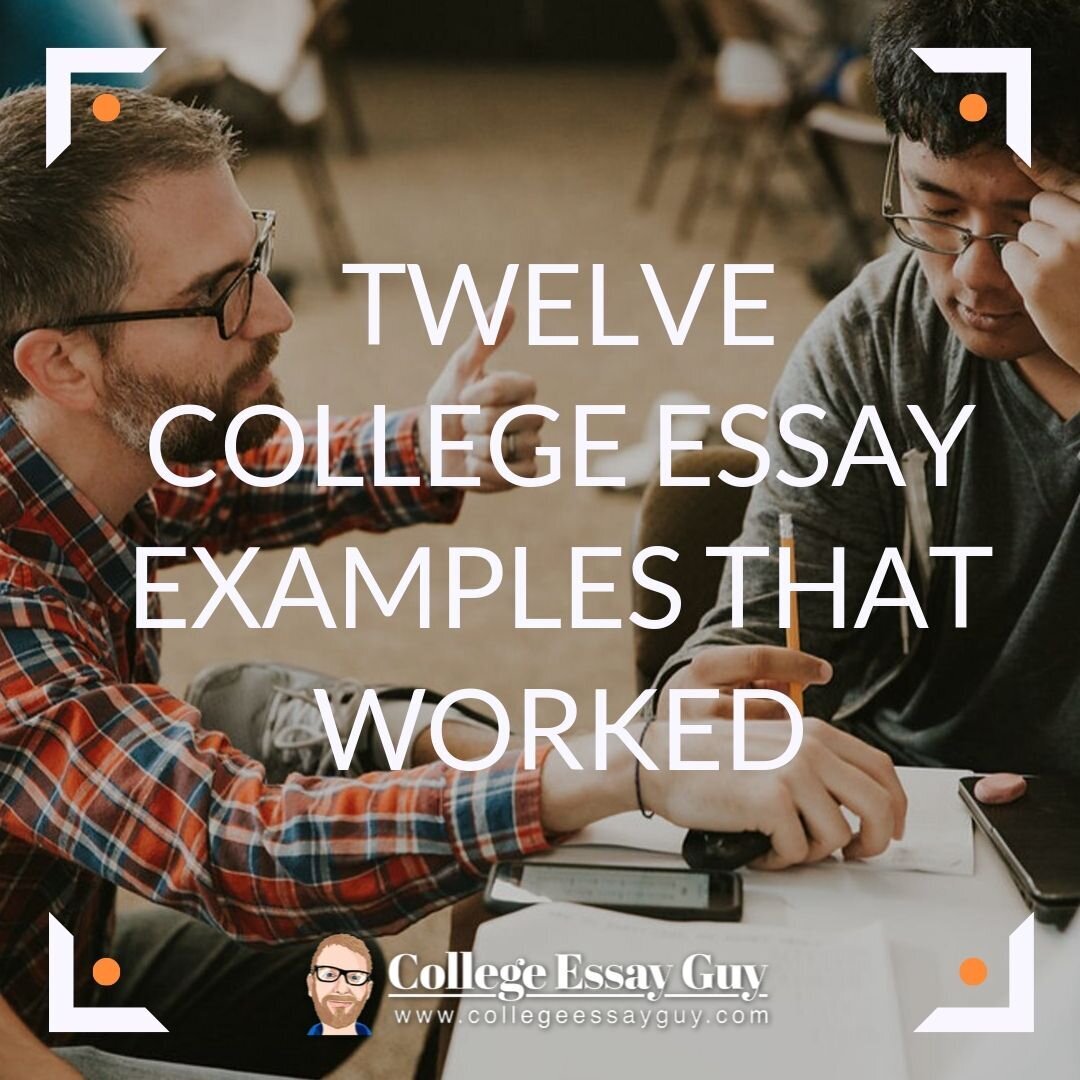
Twelve College Essay Examples That Worked
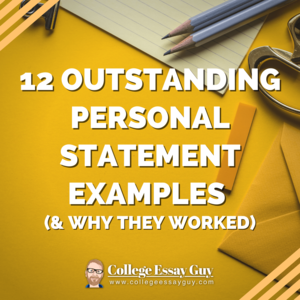
Personal Statement Examples From Successful College Applications
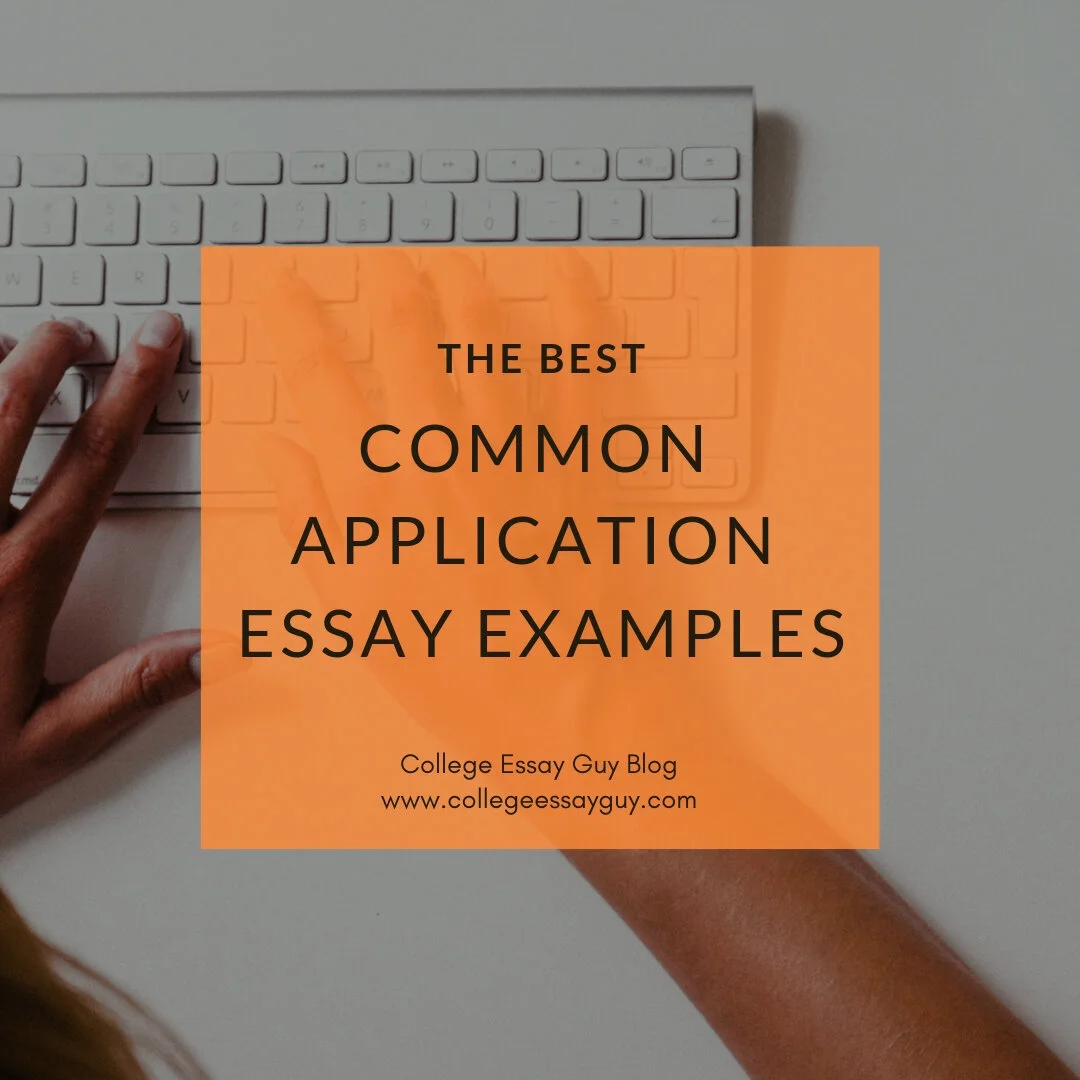
The Best Common Application Essay Examples

MORE FROM THE BLOG


The Personal Statement: Writing the Perfect Conclusion

So, you’ve written a mesmerizing personal statement, capturing your unique story while allowing your personality and voice to shine through. Yet, one question looms in your mind: “How do I end this thing?
Concluding your essay is a critically important step in your writing process, but it can also be one of the most challenging parts. Students are eager to leave a great impression in the mind of their reader, but can risk trailing off without any real closure or, perhaps even worse, concluding with a few trite sentences that take away the impact of al the words that came prior, leaving an admissions officer to wonder, “Was this essay that great after all?”
Here are a few do’s and don’ts to consider when crafting a compelling conclusion.
Be intentional! Just because you hit the magical 650-word count doesn’t mean that it’s time to stop writing. Be thoughtful about how you want to conclude.
If appropriate, refer back to an anecdote or description from your introduction. Depending on your topic, this full-circle approach can help tie your essay together.
Don’t be afraid to end with dialogue or a vivid description. Some basic strategies for writing essay introductions actually apply to conclusions as well.
Show. Don’t tell. Many college essays end reflectively, which is usually very appropriate for this type of writing. Show your reader what you learned and how you’ve grown.
Recognize that this is your last chance to make an impression on the admissions committee. Your goal is to “clinch” them.
Don’t summarize your essay. This is not a five-paragraph essay, and there is no need to summarize or restate a thesis statement. (After all, a thesis statement shouldn’t exist in the context of a personal statement!) Think of your conclusion as writing a powerful ending to a great story.
Don’t ruin a great essay by over reflecting. You don’t need a long, wordy paragraph to end an essay successfully.
Don’t use cliché phrases. Consider your words carefully before resorting to phrases such as “I think,” “I learned,” or “The most important thing.” You risk sounding cliché, and your story can easily get lost in the shuffle.
Now, let’s consider some examples of successful college essay conclusions.
Example #1: Simple, yet powerful storytelling
When class ended each afternoon, I would cap my blue dry-erase marker, give high-fives to the students as they walked out the door, and watch as their parents picked them up. I was confident that when my students were asked the inevitable questions of “Did you learn something today?” and “Did you have fun?” their answers would be a resounding yes. And even as their teacher, I learned and had fun too.
This essay, written by a student accepted at Harvard, depicts his summer spent as a volunteer instructor at a public speaking camp for elementary students. His language is simple, but his story comes to life. In this concluding paragraph, he provides important details that help his story come alive (for example, capping the blue dry-erase marking and giving his students high fives.) This is mixed with a touch of reflection (“And even as their teacher, I learned and had fun.”) Although he could have rambled for another paragraph about everything he learned, he kept it thoughtful and concise. This conclusion is the perfect example of the fact that often in the college essay process, less is more.
Example #2: Bringing the story full circle
Despite my many failed attempts at making tortillas throughout my life, I have discovered the key ingredient to the tortilla recipe, and ultimately the recipe of life: persistence. If trying to make tortillas has taught me anything, it is that: it’s not about the shape of the tortilla, it’s about how the tortilla faces the hot griddle of life.
This essay, written by a student accepted at John Hopkins, opens with a childhood memory about making misshaped tortillas by hand. The student uses this simple yet descriptive anecdote to provide a glimpse into her personal experiences with multiculturalism. In her conclusion, she refers back to the tortilla reference from the introduction, bringing the story full circle. Her conclusion is brief but powerful, and she offers a poignant metaphor without feeling the need to over-explain it.
Example #3: A glimpse into goals for the future
Initially, my goal was to catch trout. What I landed was a passion. Thanks to that first morning on Fall Creek, I’ve found a calling that consumes my free time, compels me to teach fly fishing to others, and drives what I want to study in college.
I will be leaving Fall Creek soon. I am eager to step into new streams.
This essay, written by a student accepted at Hamilton College, describes learning how to fish and how a unique friendship sparked from this hobby. The writer weaves his hopes for the future into his essay’s conclusion in a manner that is creative and intentional. He shows the readers his future goals and ends with a catchy metaphor.
Conclusions are as unique as the essays themselves; there are many different ways to create an impactful finale to your writing. If at first you don’t get it right, rewrite that closing paragraph again!
Download 100+ successful Harvard and Yale admissions essays now! FREE!
Just add your email address to receive the free e-book and get the latest strategies for this year’s essay prompts delivered to your email.
EssayMaster ALWAYS respects your privacy.
Thank you! Now, tap here to download 55 sample Harvard College admissions essays. Tap here to download 50 sample Yale admissions essays.
Topher began working at Stanford University’s Career Planning & Placement Center in 1998. His career spans 30 years. At Santa Clara University, he managed Bay Area, Los Angeles and Texas territories where he recruited, evaluated, and admitted athletes, freshman, and transfer applicants. At Ohlone College in Fremont, he served as Interim Director of Admission and Records. Since 2011, he has worked in test prep and college consulting, providing guidance to families preparing their children for college.
Topher sees applicants as they are, then inspires and motivates them to step up and into their potential. His clients have enjoyed extraordinary success at institutions ranging from selective Ivies to renowned public universities.
The Personal Statement: Writing a Winning Introduction
The personal statement: an editing checklist.

How To End A College Essay For Admission: 12 Tactics & Tips
Ending your college essay with a strong conclusion is crucial for making a lasting impression on the admissions committee.
In this guide, we’ll explore 12 effective tactics and tips to help you craft memorable and impactful endings. From connecting to your core values to employing the twist/reveal technique, these strategies will ensure your personal statement stands out.
Whether you’re looking to evoke emotion or highlight future aspirations, these tips will provide the perfect way to conclude your college essay and enhance your admission prospects.
How To End A College Essay For Admission
Why your college application essay ending is important.
We all know the reason why you write your college application essay – to convince the university of your choice to admit you. One part that may make the difference and help you stand out is the ending.
Your college application essay ending is crucial for several reasons. It’s your final chance to impress the admissions officer and leave a lasting impression.
Encapsulates Your Personal Growth
One reason your college essay conclusion is important is that it encapsulates your personal growth. Instead of merely summarising the points you made, use this part of your essay to reflect on how you’ve evolved.
If you’ve written about overcoming a challenge, conclude by highlighting what you’ve learned and how it’s shaped who you are today. This gives your essay a sense of closure and shows maturity.
Creates A ‘Full Circle’ Effect
Another reason is that a strong ending can bring your essay full circle. If you started with a compelling anecdote or a vivid image, refer back to it at the end.
This technique creates a cohesive narrative and helps to underscore the main point of your essay.
You can write about your memory of your first science fair, and then ends it by connecting that experience to your aspirations in scientific research. This not only wraps up the essay neatly but also reinforces your passion and goals.
Creates Positive Perceptions
The way you end a college essay can significantly impact the admissions committee’s perception of you. Admissions officers read countless essays, so an ending that stands out can make your application memorable.

Avoid clichés and general statements. Instead, use your conclusion to leave the reader with a powerful thought or question. This strategy not only makes your essay unique but also showcases your creativity and critical thinking skills.
How To End A College Essay For Impact – 12 Ways
Connect to your values.
Connecting to your values is an effective way to end your college application essay. Reflect on the values shown throughout your essay and name them explicitly in your conclusion.
This technique can leave a lasting impression on the admissions officer by highlighting your core beliefs.
If your essay describes various community service activities, you might conclude by stating:
“Through these experiences, I learned the importance of empathy, commitment, and leadership.
These values will continue to guide me as I pursue my college education and beyond.”
This approach not only wraps up your essay neatly but also reinforces the main point of your personal statement. It gives a sense of closure and shows your ability to self-reflect, which is something admissions committees appreciate.
Avoid simply summarising what you’ve already said. Instead, emphasise the key values that have driven your journey, making your essay ending resonate more deeply.
The Bookend or Callback
The Bookend or Callback technique is a powerful way to end your college application essay. By referring to something you set up earlier in the essay, you create a sense of closure that leaves a lasting impression on the admissions officer.
If you started your essay with a story about a childhood experience, you could conclude by linking back to that moment. Here’s an example:
“I began my journey with a simple question from my younger self, ‘Why do the stars shine?’
Now, as I pursue a degree in astrophysics, I find that same curiosity driving me to explore the universe’s mysteries.”
This technique allows you to restate the main point of your essay in a way that feels cohesive and complete. It’s an effective way to end a college essay because it brings your narrative full circle, making the essay feel well-structured and thoughtful.

Avoid common essay endings to ensure your conclusion reflects the essence of your personal statement, leaving the reader with a strong and memorable final impression.
The Road Forward
Ending your college application essay with “The Road Forward” technique can create a hopeful and positive outlook, showcasing your future potential.
Use this strategy to leave the admissions officer with a lasting impression of your ambition and readiness for exploration.
Say after discussing your passion for environmental science and the projects you’ve undertaken, you might end your essay like this:
“As I look to the future, I see myself at the forefront of innovative solutions to combat climate change. I am excited to join a community that fosters impactful research.
The journey ahead is filled with opportunities to learn, grow, and make a significant difference in the world.”
This type of ending not only summarises the main point of your essay but also gives a glimpse into your aspirations.
It helps to wrap up your essay by emphasising your readiness to embrace new challenges and your commitment to your chosen field.
Save Your Thesis for the End
Saving your thesis for the end of your college application essay can create a powerful and surprising conclusion.
This technique allows you to build your narrative and then reveal the main point, leaving a lasting impression on the admissions committee.
If your essay details various volunteer experiences, you could end with a statement that ties them all together. Here’s an example:
“After years of organising community clean-ups, and tutoring underprivileged kids, I realised that my true passion lies in public service.
I am committed to creating impactful change, driven by the belief that small acts of kindness can transform lives.”
This method works because it keeps the reader engaged, wondering how all the pieces fit together. When you reveal your thesis at the end, it brings the essay full circle and provides a satisfying conclusion.
Connect to Your Career
Connecting to your career is a way to end your college application essay. Here, you tie your experiences to your future aspirations. Here’s an example:
“Working as a camp counsellor taught me leadership, patience, and convinced me to pursue a career in pediatric medicine.
I am eager to bring the same dedication and compassion to medical school, knowing that I am prepared to make a difference in children’s lives.”
This method shows your clear vision and ambition. It demonstrates how your past experiences have shaped your career goals, providing a sense of purpose and direction.
This approach can make your essay memorable and showcase your readiness for the challenges ahead.
The “Why Us?” Set-Up
Using The “Why Us?” Set-Up to end your college admission essay can effectively bridge your personal story with the specific offerings of your chosen college. Highlight how your experiences align with the school’s:
- opportunities.
Here’s an example:
“My passion for environmental science grew through community clean-ups and research projects. I’m excited to bring this dedication to the University of X’s Environmental Sciences program, where I can work with leading researchers.
The interdisciplinary approach and community focus at Michigan align perfectly with my goals of creating sustainable solutions and driving impactful change.”
This type of ending not only wraps up your essay but also sets the stage for a compelling “Why Us?” essay. It shows the admissions committee that you’ve done your research and see a clear fit between your aspirations and what the college offers.
Back to the Beginning, but Something’s Changed
You can consider to end your college admission essay by reflecting on how you’ve changed since the beginning.
Start by mirroring language from your opening to create a full circle effect. Here’s an example:
“I began my essay describing the fear I felt when I first stepped into the debate room, unsure of my voice and place. Now, after countless debates and finding strength in my convictions, I realize that fear was the catalyst for my growth.
I’ve learned that my voice can inspire change and foster understanding. This journey has not only shaped my confidence but has also ignited my passion for law and advocacy.”
This way to end your college essay showcases personal growth and highlights your journey. It provides a sense of closure and demonstrates to the admissions committee your ability to reflect and evolve.
The Twist/Reveal
Using The Twist/Reveal to end your college admission essay can create a memorable and impactful conclusion.
Set up an expectation throughout your essay and then pivot against it for a surprising reveal.
“Throughout my essay, you’ve seen my dedication to becoming a doctor, shadowing physicians, and volunteering at hospitals. You might think my path is set in stone. But the truth is, these experiences taught me that my true calling lies in medical research.
I realized this while working in a lab, where I found a passion for discovering new treatments and understanding diseases at a molecular level. This pivot from patient care to research was unexpected, but it’s where my heart truly lies.”
This technique engages the reader by setting up a narrative and then revealing a surprising conclusion, showcasing your ability to reflect deeply and adapt.
The “Theater of the Oppressed” Ending
Using The “Theater of the Oppressed” Ending can make your college admission essay stand out by leaving the conclusion unresolved, putting the power in the reader’s hands.

This technique engages the admissions officer, making them a participant in your narrative. Here’s an example:
“As I stood before the judge, testifying for my community, I felt a surge of hope and fear. Would my words make a difference?
My journey, filled with moments of advocacy and learning, leads me to wonder: What impact can one voice truly have? The next chapter of this story isn’t written yet, and perhaps you, the reader, will be part of its unfolding.”
This method prompts the reader to think deeply about your story and its potential outcomes.
To me, this is a powerful way to end your college application essay. It leaves a lasting impression by highlighting your unresolved questions and inviting the admissions committee to envision your future potential.
This approach emphasises your engagement with complex issues and your commitment to ongoing growth and change.
The Ellipsis
Ending your college admission essay with an ellipsis can leave a lasting impression by creating an open-ended conclusion that leaves some questions unanswered.
This technique invites the reader to ponder your future and the potential paths you might take. Here’s an example:
“After years of exploring the world of robotics, from building my first simple machine to leading a team in a national competition, I stand on the brink of new discoveries.
Will I create the next groundbreaking technology? Only time will tell…”
This approach draws the admissions officer into your journey, leaving them curious about what comes next. It’s an effective way to end your college essay, highlighting your sense of potential and unfinished business.
The ellipsis suggests that your story is still unfolding, emphasising your readiness for growth and exploration.
This type of ending not only keeps the reader engaged but also underscores your ambition and drive, making your personal statement memorable.
Address the College Directly
Ending your college admission essay by addressing the college directly may sound simple. But there’s power in simplicity and being explicit about things.
Conclude by explaining how the college aligns with your future plans and why you’re excited to attend. Here’s an example:
“The interdisciplinary approach at Stanford, with its unique blend of engineering and environmental studies, perfectly fits my goal of developing sustainable technologies.
I am thrilled at the prospect of working with Dr. Smith, whose research on renewable energy sources has inspired my own projects. Joining Stanford means collaborating with like-minded individuals who share my passion for innovation and sustainability.”
This approach shows the admissions officer that you’ve done your homework and understand how the college’s offerings align with your goals. It demonstrates genuine enthusiasm and a clear vision for your future.
By addressing the college directly, you create a strong, personalised ending to your essay that leaves a lasting impression on the admissions committee.
This technique effectively wraps up your personal statement, highlighting your commitment and readiness to contribute to the college community.
End on an Action
Ending your college admission essay with a decisive action or dialogue can leave a strong impression on the admission committee.
This approach adds a dynamic conclusion that showcases your initiative and forward-thinking attitude. Here’s an example:
“As I stood on the edge of the stage, ready to present my research on renewable energy, I felt a surge of confidence.
“Let’s change the world together,” I began, looking directly at the audience, knowing this moment marked the start of my journey in environmental science.”
This method not only wraps up your essay with a vivid scene but also highlights your readiness to take action. It avoids common essay endings to ensure your personal statement stands out to the admissions committee.
By concluding with a specific action or piece of dialogue, you demonstrate your proactive nature and commitment, leaving a lasting impression on the admission committee.
4 Types Of College Essay Endings To Avoid
While you are certainly free to end your college essay in any way you want, here are three very common ones that may not only looks lazy, but could be detrimental to your application:
Writing A General Summary

Ending your essay with a summary of what you’ve already said can feel redundant and uninspired.
Admissions officers read countless essays, and a summarising conclusion doesn’t add any new value or insight. Here’s an example of a summary ending to avoid:
“To summarize, my experiences have made me hardworking, dedicated, and eager to learn.”
This approach merely restates what you’ve already shared without offering a fresh perspective. Instead, aim for a conclusion that provides a sense of closure and reflects on your journey or aspirations.
Dropping General Quote(s)
Using a famous quote to wrap up your essay might seem like a good idea, but it often comes across as cliché and impersonal. The admissions committee wants to hear your voice, not someone else’s.
Ending with a quote like “Be the change you wish to see in the world” doesn’t tell the reader anything unique about you.
Instead, use your own words to express your thoughts and reflections. Make sure your essay ending is original and showcases your personal growth or vision.
Show Your Neediness
Avoid ending your essay by begging for admission or excessively expressing your desire to attend the college.
Phrases that sound desperate are like these:
- “Please accept me”,
- “I really want to go to your school”, or
- “Can I join your school”
Instead, demonstrate why you are a good fit for the college through your experiences and aspirations.
Show, don’t tell, why you belong there by highlighting how the college aligns with your goals and how you can contribute to its community.
Show You Have Options
While ending your college admission essay by being needy can be a turn off to admissions committee, going the opposite can also backfire significantly.
In this case, we are talking about showing you have options. This means you mention that you plan to apply to multiple schools and universities , and know you will receive multiple offers to go to several universities.
Some may think writing this way shows their value, and how many universities want them. But in general, this approach may more likely to achieve the opposite, instead of the intended effect.
Writing in this manner shows disrespect, which can be a turn-off to admissions committee. It also shows you do not take your applications seriously, which can be a reflection of poor personal character .
Your essay, and application may likely be discarded right away by the admission committee.
Instead, focus on how you and the university are aligned in values, and how you can contribute to the university or school’s overall aims and objectives.
End Your College Essay In Style – And Get Admission
Crafting a strong ending for your college essay can leave a lasting impression on the admissions committee. By employing one of the 12 tactics and tips, such as connecting to your values or ending on a decisive action, you can ensure your personal statement stands out.
These strategies not only provide a sense of closure but also highlight your unique qualities and aspirations, making your essay memorable and impactful.
Use these tips to effectively wrap up your essay and make a compelling case for your admission.

Dr Andrew Stapleton has a Masters and PhD in Chemistry from the UK and Australia. He has many years of research experience and has worked as a Postdoctoral Fellow and Associate at a number of Universities. Although having secured funding for his own research, he left academia to help others with his YouTube channel all about the inner workings of academia and how to make it work for you.
Thank you for visiting Academia Insider.
We are here to help you navigate Academia as painlessly as possible. We are supported by our readers and by visiting you are helping us earn a small amount through ads and affiliate revenue - Thank you!

2024 © Academia Insider

- Menlo Coaching
- College Admissions
- How to End a College Essay
- Apply to Work With Us
How to End a College Application Essay
Finalizing your personal statement—the most common document applicants think of when they think about the college essay —is arguably the most painstaking phase of the entire writing process. As you tweak and polish, you find yourself agonizing over details or second-guessing phrases, sometimes for hours on end.
Because even after writing countless drafts, your common app essay probably won’t feel completely perfect.
And it’s not going to be perfect. It’s 650 words long: it’s impossible to fully sum up every quality that defines you in such a small space. So you’re going to need to focus your essay on specific traits and messages you can bring to life. It can be compelling to capture even just one deeply held conviction, principle, or characteristic meaningfully.
In order to do that, you’ll probably need to make some hard decisions about which parts of your story to keep and which to cut. And this is easier said than done.
But as Stephen King has said: “Kill your darlings, kill your darlings, even when it breaks your egocentric little scribbler’s heart, kill your darlings.”
This article dives deep into how to make these final polishes to your college essay so that you feel confident that you are ready to submit your best application story—one that admissions officers will remember. Read on to learn all about challenges you’ll face, goals to keep in mind, and specific tips on how to end your college application essay.
Challenges with college essay conclusions
In final edits, you must strive to keep only what’s most important: the content that is really working for the specific purpose of your essay. You may become attached to some of your ideas or anecdotes as you write, and this makes it even harder to take the birds-eye view of your work when revising. But cutting unnecessary details is vital.
Trim the Fat
This is the first challenge of finalizing a college essay : trimming the fat. Figuring out which words to cut, and which to keep. Making the hard decisions to scrap some details in favor of others.
In order to do this, you’ll need to take a step back from the essay. Ideally, you should give yourself several days between finishing your draft and going back to look over its conclusion. Getting this high-level perspective on your own story takes time, but later in this article we share concrete suggestions on how to do exactly that.
When considering this challenge, however, it is often helpful to bear in mind that the essay is written for a real person to read. The Admissions Officers at your dream college are looking to empathize with you. In order to do that, your message needs to be clear and cohesive, not all-encompassing. And this can only be accomplished through intent: knowing what content is most important, and what can be done away with.
Navigating Feedback
Another challenge you are going to face is that so many people may want to give you their opinion on your personal statement. Parents may all of a sudden remember that they wanted to look at it. Even cousins, aunts, uncles, siblings, teachers, friends, and others may give opinions.
And they’re probably going to have conflicting ideas. Because in the end, a college application essay is, to some extent, subjective. When you aim to communicate something honest and authentic about yourself, people are going to feel different ways about it. They will have their own conclusions and biases because of your personal relationship with them. They may unknowingly try to get you to show the person they think you are, rather than the person you believe yourself to be.
Such contradictions are confusing. They may distress or overwhelm you. So be especially careful about who you show your personal statement to in these final stages. It’s best if this is just one guide or mentor you’ve worked with throughout the drafting process. And bear in mind that in the end, it is your opinion that matters most. You are going to have to decide that it’s done. Not that it’s perfect, but that it’s done.
Don’t Compare
The last big challenge you are likely to face is the dangerous inclination to compare your own common app essay to those of others, to ask classmates about their topics for their personal statements, or even to read through their essays.
This can even lead you to search for “sample college essay” online. You may find essays from other students who were accepted to your dream college and have done an entire analysis of their own application. And though these essays may serve as great inspiration and models before you begin writing, this level of comparison is going to hurt you rather than help you once you get to the stage of ending the essay. Resist looking at anybody else’s essay when your essay is the only one to focus on.
Goals to aim for when finalizing your common app personal statement
Though you’ll be focused only on your own college application essay, there are some helpful general goals you should keep in mind so that you are able to step back and review it from another person’s point of view.
There are a few vital things that a personal statement should do for your application. In some ways, you can think of this essay as your way to make a less formal impression on the admissions officer, as if you were introducing yourself at a party. You want to be the person who they speak to for just five minutes, but who they remember vividly. To do that, your college application essay will need to accomplish several goals.
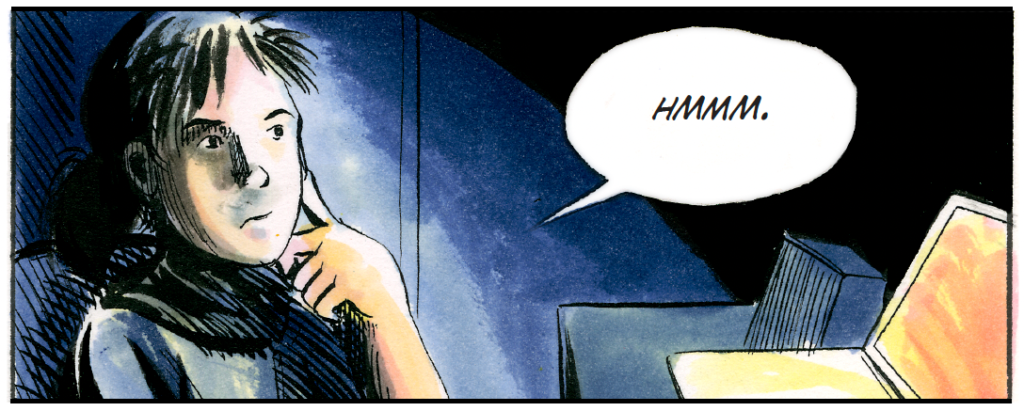
The first of these goals is to arrive at a deeper level of substance. This is often the challenge that most intimidates students. You might think you need to arrive at some grand, philosophical insight into the world.
But that’s unrealistic, for most of us. Instead, think about this goal in a relative sense. Compared to the rest of your college essay , your conclusion should add something new. Ideally, this substance would be thought-provoking: a connection to something else in your life or a crystalized indication of why this is so meaningful to you. Or it may simply be just a principle stated directly and elegantly, which captures the lesson you’ve taken from the story you’re sharing.
This doesn’t mean that your conclusion must be grand and expansive. In fact, the bigger your ideas get, the more likely you are to end up writing something that is vague or cliche. The deeper level of substance has to be specific to your story. Your immediate lived experience. It can range from the mundane to the abstract: as long as it builds meaningfully upon the reflection you’ve developed earlier in the essay, it can give the reader something to ponder.
And that connects to the second goal of finalizing the personal statement: to be clear and memorable. This also primarily concerns the essay’s conclusion, because that is almost always the last part to fully come together.
Yes, you are going to be building in nuance and subtlety in these final edits: that’s important, as it helps you to refine and differentiate your message. Yet, though you want to put sincere effort into these details, so the admissions officers can tell you really worked hard on this college essay, you also can’t afford to be convoluted.
Thus, it’s best if you clearly define your final takeaway: that belief, connection, or principle you are stating. This message has to be tangible and immediate in order to be memorable. If it’s too hard to figure out what exactly the main point is at the end, you’re going to be in trouble!
The last vital goal of the Personal Statement is less explicit: your college essay should give an indication about what this whole story means about not only your present self, but your growth in the future.
Whether you’re writing an emotional story, an intellectual curiosity story, a social story, or a story about none of these things, you must remember the perspective that you are still just a teenager. You have a lot of your life in front of you, and colleges really need to see that you are looking to grow further beyond this point: that this person who you are today is not the person you will be forever. That you are intent on developing and challenging yourself in new ways moving forward.
This indication about the future is not something that needs to be clear and straightforward. It’s something that should be a part of your thinking when you go back over the essay, ideally with one other person who has been involved in the process with you. Is it clear to them how your lessons from the essay will inform your future? If not, or you seem perfectly content with who you already are, then you have good reason to reflect on what you really want beyond college.
Tips on writing a strong college essay conclusion
Alright: you’ve understood your challenges and set your goals. You’re in the very last stages of editing. Here are the concrete things that you should be doing when you are revising your personal statement through to the final paragraph.
The first thing to do is to cut out absolutely any platitudes or pithy phrases. Platitudes are general statements that have been made countless times before and will be made countless times again. These include any statements about “people” in general, or huge ideas about what “art” is, or what “society” is like. If you use these types of sentences, then you no longer seem to have original ideas. The habit can lead you to make sweeping, general assertions that make the entire essay seem less personal.
And you absolutely need to avoid that like the plague. Because the main point here is to communicate your perspective. So cut out those platitudes, and similarly, do away with any glib or pithy phrases.
The conclusion is not the place for witticisms or jokes. They might be woven in earlier in the essay, if it’s important to you to highlight your humor—you’ll have opportunities to do that. But trying to infuse the conclusion of your college essay with laughter is almost always the wrong way to go. You need to show that you are capable of earnestness: of stating something substantial about yourself. Misplaced humor can subvert this and is best avoided.
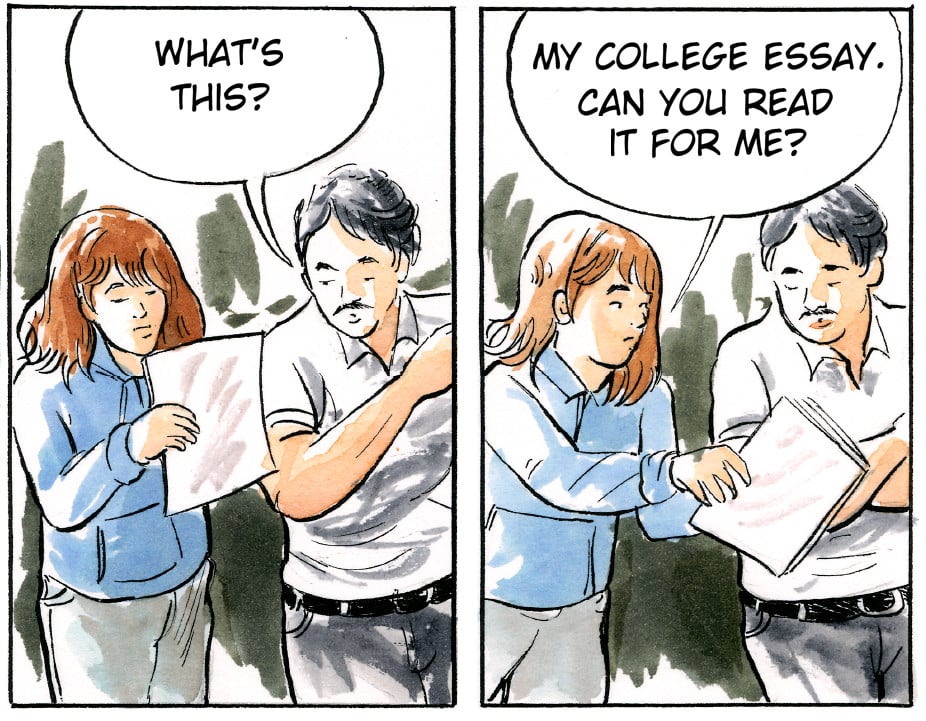
Do a live editing session with a trusted counselor, consultant, or mentor, and read your entire college application essay aloud during this time.
Does the college essay really sound like you, or perhaps, a slightly more poised and polished version of you? That’s okay, but it should still sound authentic. It should still have your voice, replete with quirks or phrasing habits.
The second strong way to double check the essay’s authenticity is to imagine the essay up on a wall, in a huge library of other essays. Could your best friend in the world, without knowing anything other than the story in the essay itself, pick this off the wall? Would they immediately recognize that this was your story and no one else’s? If you can confidently answer yes to these questions, then you can trust that your essay is genuine.
Finally, do one important check to tie together the entire essay: make a Mission Statement for your story.
- Write out in a simple sentence the one message about who you are that the admissions officer will remember. This Mission Statement should look something like: “I am the student who _________ and who will ____________.”
What goes in the blank spaces? The first should be filled with the character traits you want to capture or the behaviors you are proudest of. The second space should make note of the person you want to become or the impact you want to have in the future .
When writing out this sentence, be as precise as possible. Don’t use vague, generic traits like “kind” or “helpful”—focus on specific personal qualities that define you. Perhaps you are resourceful, or bold, or compassionate, or gritty, or resilient, or intensely curious. Don’t be afraid to connect these traits to your actions. If you are enthusiastic, perhaps you are skilled at motivating others toward a unified goal. If you are compassionate, perhaps you make people feel comfortable sharing their vulnerability.
Likewise, when considering your future self, you want to show a sincere vision for your personal growth. It shouldn’t be all about making money, increasing status, or building a high-profile career. It should be a reflection of your self-awareness. What are the parts of yourself that you are not yet satisfied with? How can you build yourself toward them? If you’re having trouble coming up with ideas, look to your inspirations—the people you look up to. Notice how they behave and what they can do that you admire.
Many successful essays begin with a compelling Mission Statement that help the author to shape a memorable college application essay. Let’s examine a few examples:
- “I am the student who uses limited resources creatively to expand future opportunities for other young people, and who will work to increase the scope of the underserved groups I impact.”
- “I am the student who has an insatiable drive to create order from chaos, and who will continue tackling bigger and more complex problems using logic and deductive reasoning.”
- “I am the student who cares deeply to understand and examine threats to mental health, and who will use this understanding not only to provide personal support for others, but to work on shaping policies and initiatives that affect the wellbeing of broader society.”
Note that the structure of each of these sentences is simple, but the student in each sentence has changed the Mission Statement slightly to reflect what makes them special. So once you’ve gathered the traits, actions, behaviors and decisions that you feel define you, don’t be afraid to get creative.
Writing a Mission Statement you believe in will help you when you go back to read your college application essay aloud. It should give you clarity on whether you are really communicating your message—and only this message—as compellingly as I can.If you notice that you are trying to pull in too many other random details, reel your story back to its Mission Statement.
We hope these tips have given you clarity on how to end your college application essay. If you follow these steps through to the last paragraph, we are confident you will arrive at a common app personal statement you are truly proud of.
Found these tips useful? Simplify your college application experience with expert college admissions consulting. Collaborate with our skilled College Consultants to craft compelling applications.
Related Articles
- Career Exploration for High School Students
- Top Undergraduate Business Schools
- How to Make Your College Essay Stand Out: Essential Tips
- How to Write a Why This College Essay
- College Admissions Assistance: 3 Reasons to Hire a Consultant
- How College Admissions is Changing in 2022
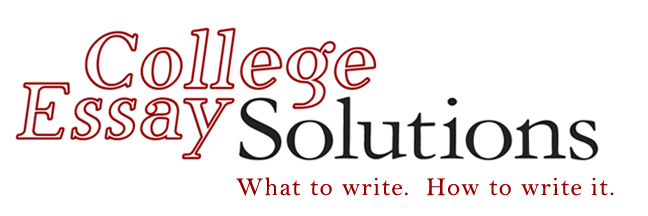
- 818-445-4697
- [email protected]
YOUR COLLEGE ADMISSIONS ESSAY: SIX WAYS TO CREATE A MEMORABLE CLOSING
- September 19, 2012
- , How to Write a College Essay
The old show business expression goes, “Always leave them wanting more.” In writing your college application essay, the rule should be, “Always leave them wanting you.”
One way you can accomplish this is by ending your essay strongly and memorably. Here are six ways to end a college essay that will leave Admission Officers saying to themselves, “Yes, we must have this student in our freshman class.”
1. “The Buzz Lightyear”
Remember Buzz’ trademark line, “To infinity and beyond?” That’s where you will take the reader with this technique. Whatever subjects or themes you’ve been exploring in the essay, expand them into the future. If you’ve described your involvement in community service, use the final paragraph to discuss how you’ve been inspired to continue volunteering in college and beyond. If your essay was about your love of classical music, state your intentions to learn even more about it as you get older. In this way, you help establish yourself as a person who intends to be constantly learning and growing, which can only have a positive impact on your acceptance.
2. “The Echo”
This technique takes a phrase, a theme, an object, a person from the beginning of your essay and brings it back at the end. Using it will give your essay a feeling of unity and completion, leaving the Admissions Officer both satisfied and impressed. As an example, say you’ve started your essay with a bit of dialogue between you and your dad. Employing “The Echo,” you would then close the essay with another snippet of dialogue, ideally reflecting the major theme of the essay. If you began with the image of yourself boarding a camp bus for your first summer away from your parents, you might end it with the image of you boarding another bus, the one taking you off to college. However you use it, this technique is great way to show that you know how to bring a concept full circle.
3. “The Head of the Class”
Simple, direct, but always effective, this closing technique summarizes what you have learned through the events you’ve been describing in the essay. If you helped serve Thanksgiving dinners at a local homeless shelter, this is where you would state what you learned through the experience. To keep this approach from being too simplistic, try to offer examples – showing, not telling – of how these lessons have played out in your life.
4. “The What If”
It can be interesting to close your essay by wondering what would have happened to you – what kind of person you would have been, what values you might have had – had the events of the essay never occurred. This can illustrate your capacity for “big picture” thinking – seeing things from more than one perspective – as well as an appreciation for the benefits you’ve enjoyed from the way things actually occurred.
5. “The Ribbon and Bows”
Ending your essay by neatly tying up all the different themes, story lines and characters that you’ve introduced will give the reader a satisfying sense of completion, as well as a strong feeling of confidence in your writing skills. Leave no questions unanswered, complete all anecdotes, and most importantly, keep the tone upbeat.
6. “The Reveal”
With this technique, you disclose a significant piece of information, or a part of yourself, that you haven’t revealed in the body of the essay. In an essay about your inspiring first coach, it might go something like, “Coach Jane passed away last year and now, every time I get a new pair of tennis shoes, I write her initials on the inside. Maybe it’s my imagination, but I think it helps me play better.” This approach can help tie together earlier parts of the essay and also be very dramatic, which is always a positive.
In writing the college application essay, the concluding paragraph could be your last chance to make an impression on the reader, and positively influence your acceptance to the school. So use these techniques to assure that your final words are also your most memorable.
For more personal help with the college admissions essay, please contact Craig Heller directly at [email protected] or 818-340-1276.
Share this post
Related posts, writing a college application essay, the 2018-19 common application essay prompts: how to write essay #5, the 2018-2019 common application essay prompts: how to write #4, the 2018-2019 common application essay prompts: how to write #3, the 2018-2019 common application essay prompts #2, the 2018-2019 common application essay prompts #1.
© 2024 College Essay Solutions | All Rights Reserved.

IMAGES
COMMENTS
Mar 9, 2021 · How you end your college application essay can have an important impact on how your reader experiences your essay: while we’ve seen essays that are really solid even without an incredible ending (meaning: please don’t panic and add stress to an already stressful process), we’ve also seen college essays whose endings took the essay up another level.
Jan 20, 2023 · A personal statement conclusion should be 150-200 words long and leave a positive lasting impression on the reader. A UCAS personal statement should be 4000 characters long, making the conclusion 705-940 characters long – this is just a rough estimation based on the average number of characters per word (4.7).
Oct 16, 2021 · The ending of your college essay should leave your reader with a sense of closure and a strong final impression. The conclusion is often harder to write than the college essay introduction, and you may need to rework it when revising your essay, but there are some strategies to ensure that you don’t ruin a good essay with a mediocre conclusion.
Apr 26, 2024 · When you know how to end a personal statement, you boost your chances of making a lasting impact on the admissions committee. It's all about making sure they remember you in a positive way. Crafting a compelling personal statement is the cherry on top of your college application essay.
How to Write a personal statement A Comprehensive Video Course for Students. A seven-part online course designed to gives students and counselors everything they need to figure out (or help someone else figure out) how to write a personal statement for the Common App. Watch the Q&A sessions after each session where I answer important questions about the personal statement-writing process and ...
Dec 10, 2020 · (After all, a thesis statement shouldn’t exist in the context of a personal statement!) Think of your conclusion as writing a powerful ending to a great story. Don’t ruin a great essay by over reflecting. You don’t need a long, wordy paragraph to end an essay successfully. Don’t use cliché phrases.
Jun 5, 2024 · End Your College Essay In Style – And Get Admission Crafting a strong ending for your college essay can leave a lasting impression on the admissions committee. By employing one of the 12 tactics and tips, such as connecting to your values or ending on a decisive action, you can ensure your personal statement stands out.
How to End a College Application Essay. Finalizing your personal statement—the most common document applicants think of when they think about the college essay—is arguably the most painstaking phase of the entire writing process. As you tweak and polish, you find yourself agonizing over details or second-guessing phrases, sometimes for ...
Sep 19, 2012 · In writing your college application essay, the rule should be, “Always leave them wanting you.” One way you can accomplish this is by ending your essay strongly and memorably. Here are six ways to end a college essay that will leave Admission Officers saying to themselves, “Yes, we must have this student in our freshman class.” 1.
Aug 22, 2024 · The biggest mistake students make when crafting an end to their college essay is not taking the conclusion seriously. In essays you’ve written for class, you may have been encouraged to restate your thesis in the conclusion. While that’s a good strategy for an informative essay, a college personal essay is very different.